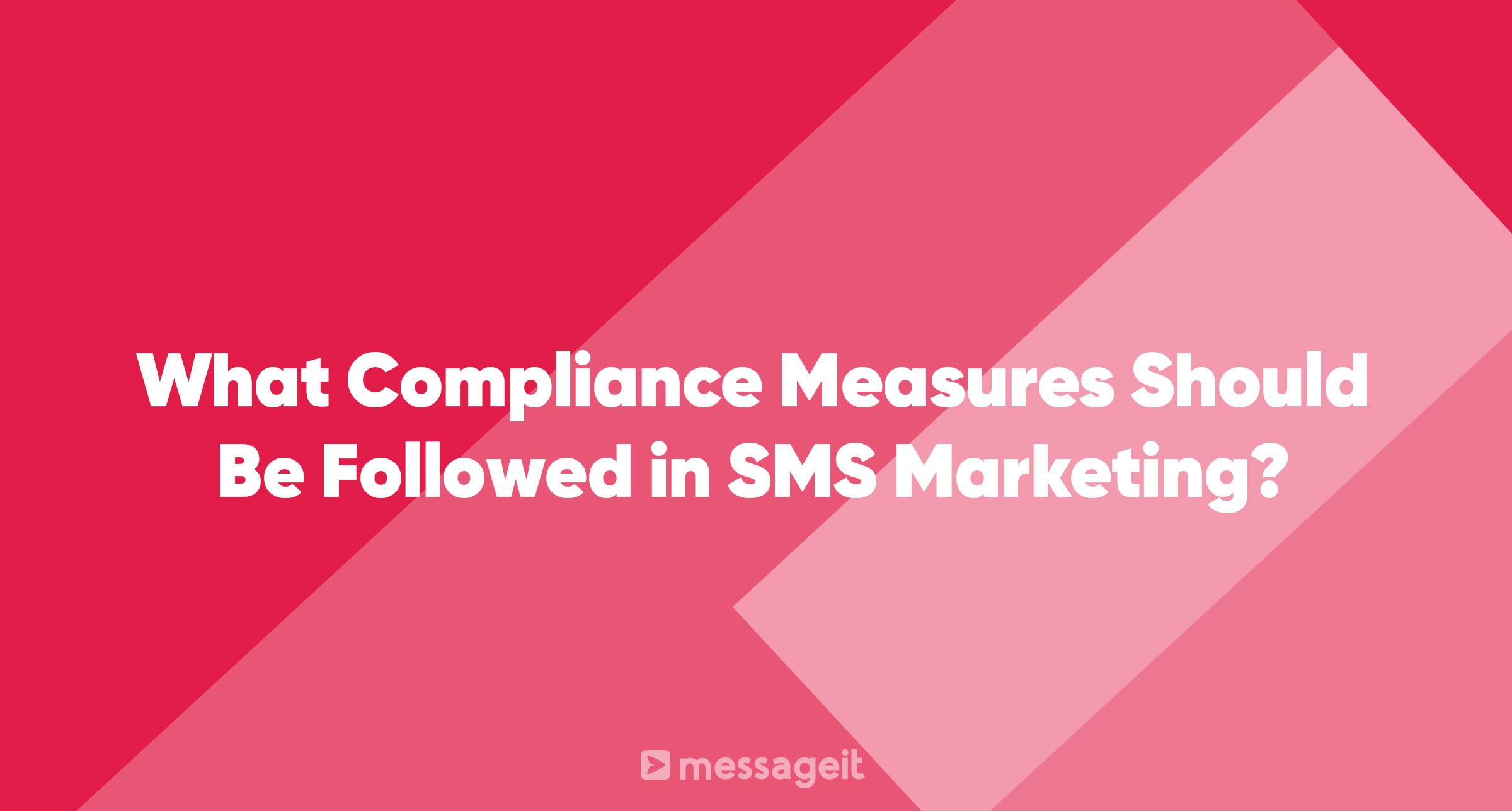SMS marketing has emerged as a powerful tool for businesses to connect with their customers directly. With its high open rates and immediate reach, SMS marketing can be incredibly effective in driving conversions and building brand loyalty. However, it is crucial for businesses to understand and adhere to compliance measures to avoid costly fines and protect their reputation. In this comprehensive guide, we will explore the compliance requirements and regulations that businesses should follow when implementing SMS marketing campaigns.
SMS Compliance: An Overview
SMS compliance refers to the set of rules and regulations that businesses must adhere to when sending marketing text messages to their customers. These regulations are in place to protect consumers from receiving unsolicited and spam text messages, safeguard their privacy, and ensure that SMS marketing is secure, reliable, and dependable.
Different countries have their own specific laws governing SMS marketing. In the United States, the Telephone Consumer Protection Act (TCPA) is the federal law that businesses must comply with. The TCPA requires marketers to obtain express written consent from mobile subscribers before sending them marketing text messages. Additionally, the Federal Communications Commission (FCC) issues regulations related to SMS marketing.
Similarly, in India, SMS marketing is regulated by the Telecom Regulatory Authority of India (TRAI) through the Telecom Commercial Communications Customer Preference Regulations (TCCCPR) 2018. These regulations aim to prevent unsolicited and fraudulent text messages, protect customer privacy, and ensure the reliability of SMS marketing.
Importance of SMS Compliance for Businesses
Maintaining SMS compliance is not just a matter of legal requirement; it is essential for businesses to protect themselves and their customers. Non-compliance with SMS regulations can have serious consequences, including hefty fines, legal repercussions, and damage to brand reputation. By following compliance measures, businesses can ensure that their SMS marketing campaigns are effective, reach the right audience, and maintain customer trust.
Non-compliant messaging can result in phone carriers blocking your number, making it impossible to reach your customers. This can lead to lost revenue opportunities and hinder your ability to communicate important information to your audience. Moreover, fines for non-compliance can be substantial, potentially ranging from $500 to $1,500 per non-compliant message. These penalties can quickly add up and have a significant impact on a business's bottom line.
Key Compliance Measures for SMS Marketing
To ensure compliance with SMS marketing regulations, businesses should follow these key measures:
1. Obtain Consent/Opt-in
Before sending marketing text messages to customers, businesses must obtain their informed consent. Consent can be obtained through various methods, such as texting keywords, sign-up widgets on websites or apps, web forms, or paper forms. It is crucial to make the opt-in process simple and easy to understand for customers, clearly stating what they can expect from receiving the messages.
It's important to note that having a customer's phone number does not automatically grant permission to send them text messages. Businesses must obtain explicit consent for SMS marketing, separate from other forms of communication.
2. Provide Opt-out Options
Every message sent to customers should include clear information on how to unsubscribe or opt-out from receiving further text messages. Customers should have the ability to opt out at any time, and the process should be straightforward. This can be achieved by including a term that customers can respond to, such as "STOP" or "UNSUBSCRIBE."
Businesses must honor opt-out requests promptly and ensure that customers no longer receive messages after opting out. Making the opt-out process difficult can lead to customers reporting messages as spam, which can result in phone carriers blocking the business's number.
3. Identify Yourself
When sending marketing text messages, it is crucial to clearly identify yourself as the sender. Including your company's name and providing a physical location in the message can help establish trust and legitimacy. By clearly identifying your business, customers are more likely to recognize and engage with your messages, reducing the risk of them perceiving them as spam.
4. Sender ID
Businesses sending SMS messages must use a registered and approved sender ID. The sender ID, assigned by the network operator, must be displayed in the header of the message and should not be misleading or impersonate any other organization or individual. This helps customers identify the sender and ensures transparency in communication.
5. Maintain Transparency
Transparency is key in SMS marketing compliance. Businesses should be open and honest with customers about the types of messages they can expect to receive and how frequently they will receive them. If businesses collect customer data, they should clearly explain how it will be used and protected.
Additionally, businesses should provide clear terms and conditions and a privacy policy that outlines their practices. These documents should be easily accessible to customers, either included in the message or provided through a link.
6. DND (Do Not Disturb)
In countries like India, customers registered on the National Do Not Disturb Registry (DND) should not receive promotional SMS messages unless they have explicitly consented to it. Businesses must respect customers' preferences and avoid sending promotional messages to those on the DND list.
7. Maintain a Record
Businesses should maintain detailed records of their SMS marketing activities, including consent received, sender IDs used, message content, opt-in and opt-out requests, and any other relevant information. These records should be accessible to regulatory authorities for inspection. Maintaining proper documentation helps businesses demonstrate compliance and protect themselves in case of any legal inquiries.
Conclusion
Following compliance measures is crucial for businesses engaged in SMS marketing. By obtaining explicit consent, providing opt-out options, identifying themselves clearly, using approved sender IDs, maintaining transparency, respecting customer preferences, and maintaining comprehensive records, businesses can ensure compliance with SMS marketing regulations. Compliance not only protects businesses from fines and legal repercussions but also fosters customer trust and engagement. By adhering to these measures, businesses can leverage the power of SMS marketing effectively and responsibly. Remember, compliance is not just a requirement; it is a fundamental aspect of building long-term customer relationships and driving business success.
